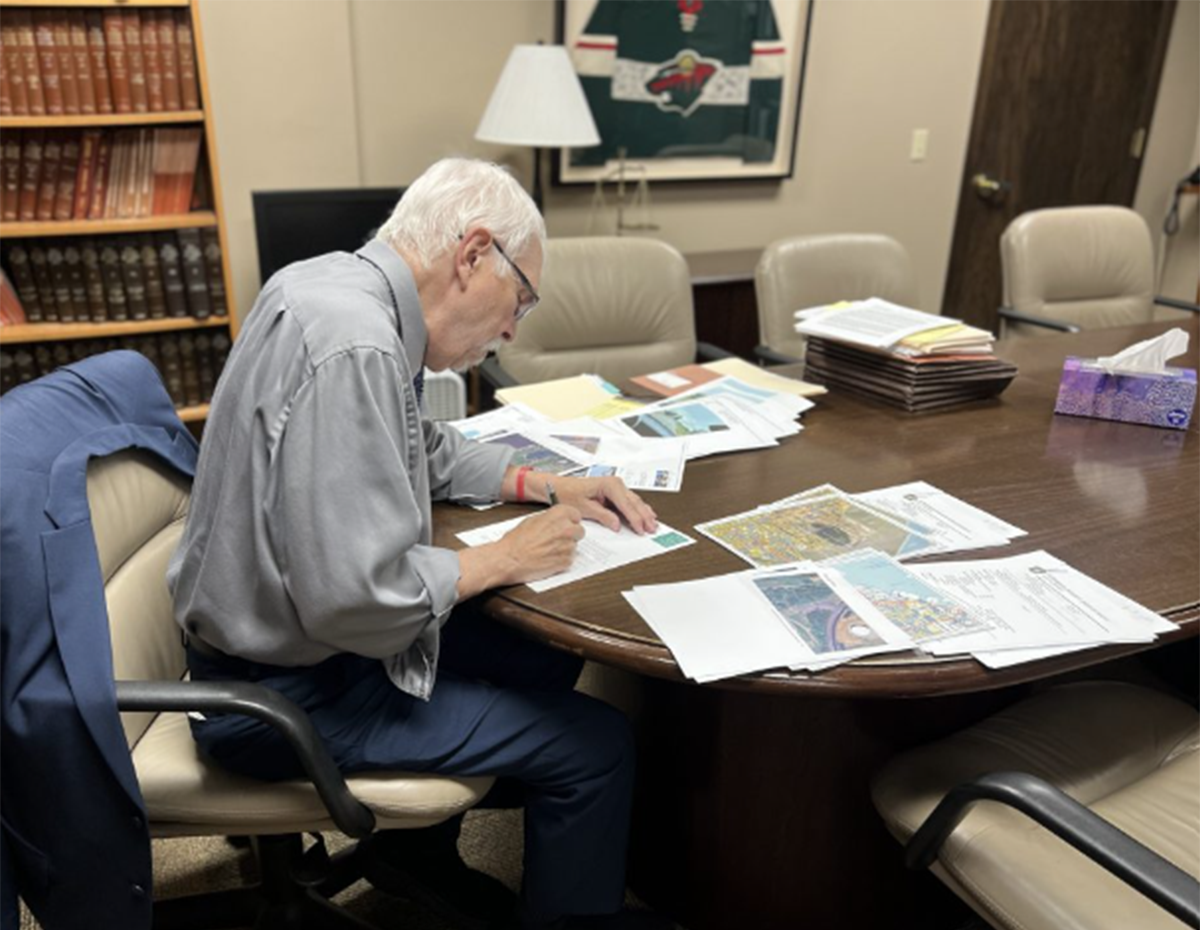 Kathlyn Hotynski
Kathlyn HotynskiClose to 1.5 million children died in the Holocaust. Inge Auerbacher, a child of the Holocaust, is one of the few survivors but said she will never forget the horror.
“Those three million children eyes haunt me,” she said. “Their story was mine, and mine was theirs.”
Sponsored by University Activities Commission, Auerbacher took a packed Schofield Auditorium on a journey Tuesday night to the time of Nazi reign, when she was forced to grow up fast.
She spoke about her experiences, stressing tolerance and diversity, but did not make the event a somber one. She had the audience laughing on several occasions, and by the end they were on their feet with applause.
Junior Kristine Radtke Norris first met Auerbacher in one of her Holocaust classes last year and contacted her to speak at this event.
Radtke Norris said she was thrilled with the turnout from both the city and campus communities who showed up to hear her story.
Auerbacher, an only child, was born in 1934 in Kippenheim, Germany.
She had a happy, patriotic German family, she said, but Hitler came into power and things would never be the same.
When Auerbacher was 3 years old, the Nazis had their night of full power. During Kristallnacht, or Night of Broken Glass, almost all the synagogues were torched or desecrated and windows were broken.
“I remember how I was standing in the living room,” she said.
One of the “hoodlums” destroying her house stood outside her window and said, “See, the chandelier is still hanging!” she said, and they threw something in her window to make it fall.
But despite what was happening, it was very hard to pick up and leave, Auerbacher said, adding her father thought it would all end soon.
“This crazy man (Hitler) will go away,’ ” she said, recalling her father’s words.
But in August of 1942 Auerbacher and her parents were deported to Theresienstadt Concentration Camp in Czechoslovakia.
There, they lived in a stone barracks where mice, rats, fleas and bed bugs were their companions.
“It was a really macabre world,” she said.
They were constantly thinking of “food, food, food!” Auerbacher said, and joked that they would dream about enjoying the “biggest mountain of whipped cream” when they were free.
After spending three years in Theresiendtadt, the camp was liberated on May 8, 1945.
Of the more than 15,000 children that passed through the camp, she was one of only 100 survivors.
Auerbacher’s parents escaped safely as well, something she calls a “miracle.”
“My whole life has been a miracle, to tell you the truth,” she said.
In 1946, the family immigrated to the United States and settled in Queens, N.Y., where Auerbacher still lives today. Because there were no jobs available, her father started selling brooms out of his suitcase.
“He didn’t do so good with brooms,” she said with a laugh, “so we had all these brooms at our house.”
While Auerbacher can joke, she said she will never forgive what was done to her.
“I do not forgive and neither do I forget,” she said. “I will never forgive those who did it. . In the Jewish religion, pre-meditated murder can only be forgiven by the person who was murdered.”
Senior Kristin Benedict said she’s always been interested in the Holocaust and was eager to hear Auerbacher speak.
“I thought it would be more of a somber thing, but I really enjoyed how she presented it,” Benedict said.
And non-traditional freshman Dave Ortmann said he gained a great deal from listening to her story.
“I was enriched beyond measure,” he said. “I love her soul.”






